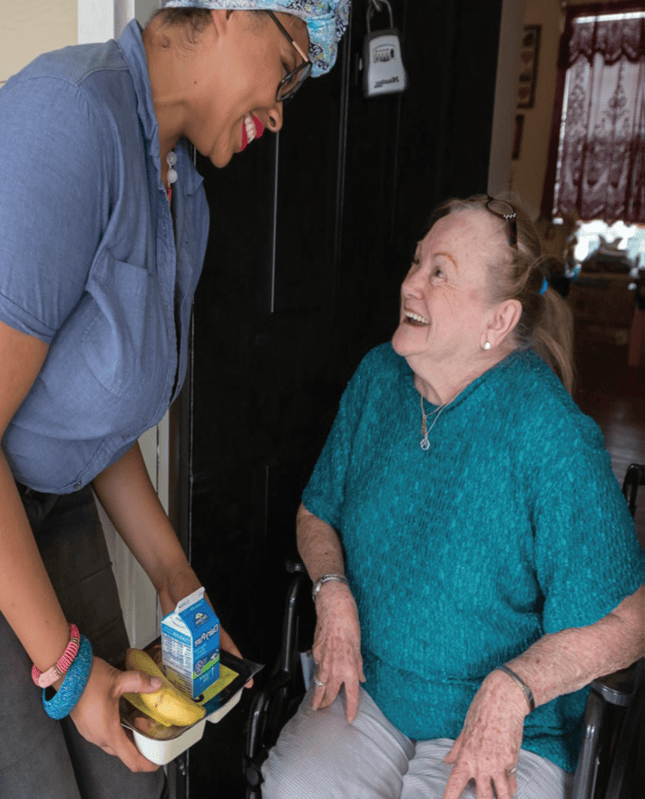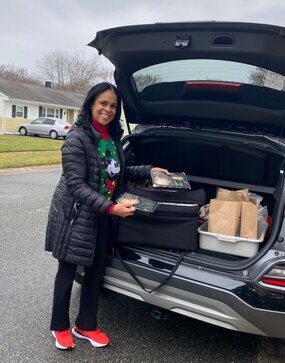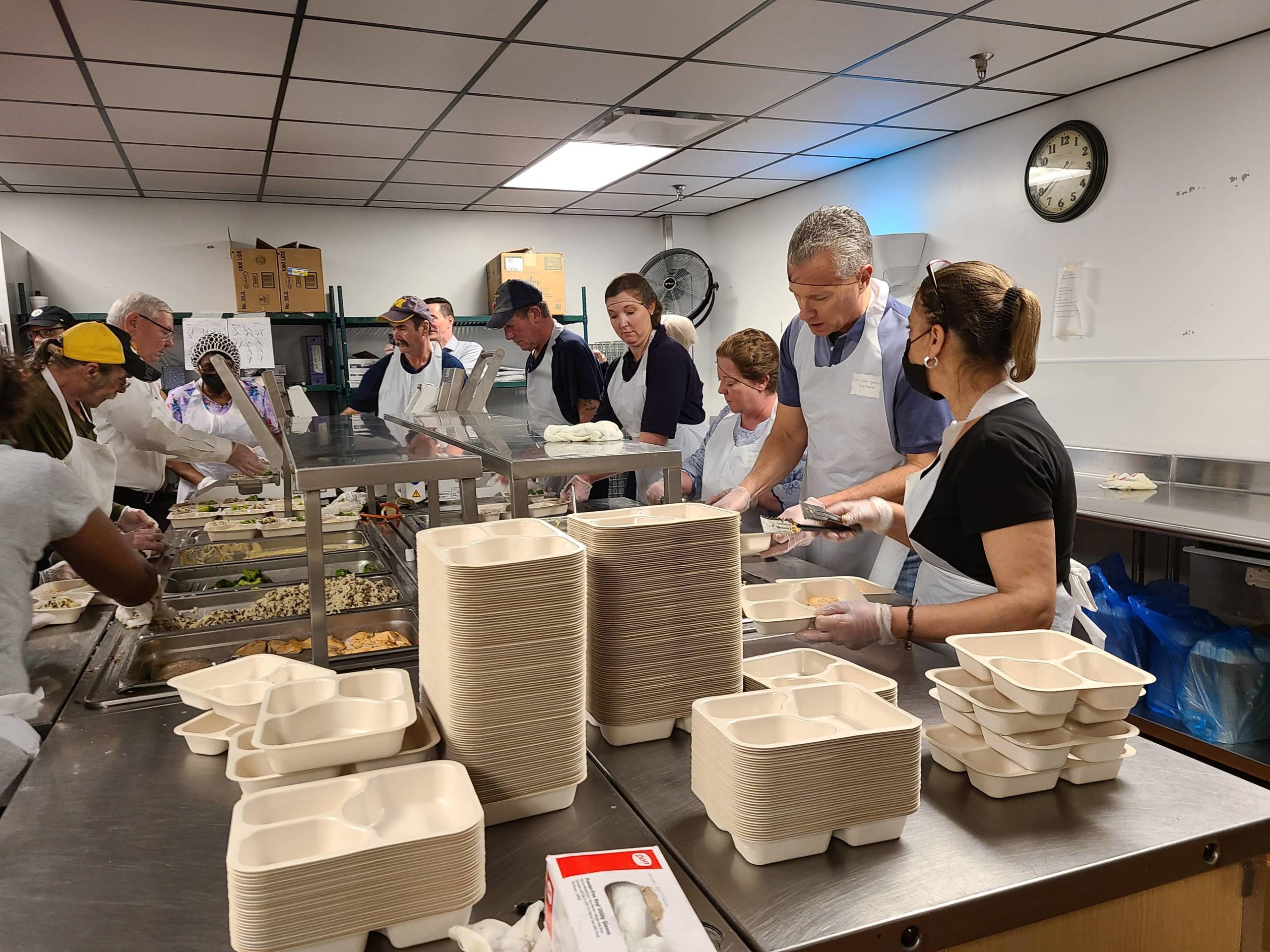In 2021, 898,509 hot and nutritious meals were delivered to over 6,600 seniors statewide in Delaware. The number of homebound seniors using Meals on Wheels services has increased by more than 5% in the past year. ACME supports this nonprofit through its GIVE BACK WHERE IT COUNTS Reusable Bag Program.
Tell us about the Meals on Wheels Delaware.
In Delaware, in 1995, it became apparent that the state wasn’t going to have enough funding to support the need that was coming from the community for Meals on Wheels programs. Meals on Wheels is a national organization, but it’s very much a set of local networks that all work independently.
So, Meals on Wheels Delaware was created to be a voice for advocacy and fundraising for the Meals on Wheels programs within the state of Delaware. We really were formed as a public-private partnership because the Division of Aging leadership discovered that there was a funding mismatch.
There also was a desire that there wouldn’t be a waiting list. Nobody wanted to have their grandma or their mom sitting, waiting for months for a meal. That was in 1996, and we’re proud to say that to this day, there is not a waiting list for Meals on Wheels in the state of Delaware, which is wonderful and pretty unusual across the country.
Our mission, to raise funds and advocate in support of the Meals on Wheels programs in the state of Delaware, has not changed since 1996. The world has changed round us for sure, but we’ve stayed consistent to that mission and been able to deliver on it.
We support five individual programs in Delaware that provide Meals on Wheels: City Fare, CHEER, Meals on Wheels Lewes-Rehoboth, The Modern Maturity Center, and Newark Senior Center.
Four out of the five also have very active senior centers and are hubs of activity for their senior communities. These activities range from early memory loss programs to swimming to computer labs. They do the heavy lifting in preparing and delivering meals every day, but we’re focused on the fundraising aspect. That’s where we put our time and our energy, and we partner alongside with them.
We’re in communication all the time. We understand what’s changing with them, what they might need. We can give that statewide point of view where we can see changes happening. And we can reflect that back to the leadership at the state level also. With the recent rise in gas prices, for example, we saw that the volunteers who turned up every day, who drive the miles to get the meals from the centers to the senior homes, were struggling. They were vocalizing that they really couldn’t continue to deliver as much as they had with the increase in gas prices. We were able to help them with some funding towards gas reimbursement for the volunteers.
We’re there to support, we’re there to listen, and we’re there to make sure there’s funding for the things that the programs need.
We’re there to support, we’re there to listen, and we’re there to make sure there’s funding for the things that the programs need.
What sets you apart from other nonprofits in the community?
What sets us apart is that we are focused on the fundraising piece, and we’re also focused on homebound seniors, making sure that they have good nutrition and that they have someone who’s there every day. That’s different from a lot of other service organizations where they might be there to do an assessment one day, and then they might not be back for three months or so. But because of the way that the Meals on Wheels program is set up, five days a week, there’s a human being that comes to the door of that senior’s home and really gets a chance to assess if there’s a sudden decline.
When we talk about seniors, there could often be a very sudden change in their health. Small changes can really accelerate quickly to the point where they need some type of intervention. So that is something that’s unique to Meals on Wheels, that consistent contact with the individual.

What services do you provide to the community?
Nutrition is the most essential thing we provide, which really is a bedrock for health. When you look at how seniors decline, many of them decline because they really don’t take care of their nutritional needs.
Left to their own devices, they’ll have cereal for breakfast, and they might have piece of cheese or an apple for lunch. With Meals on Wheels, they get at least one meal a day that’s nutritionally balanced. It covers everything that someone needs to stay healthy. And it has been proven that when seniors go on Meals on Wheels, their health improves.
Nutrition is the most essential thing we provide, which really is a bedrock for health. When you look at how seniors decline, many of them decline because they really don’t take care of their nutritional needs.
Tell us a story that illustrates the good work you are doing.
We have a lot of stories about the connections that get formed between the volunteers who deliver meals and the seniors they deliver to regularly. The volunteer becomes more than an acquaintance to the senior; they really become a friend, and they become someone that the senior can count on.
We had a story recently where a lady’s husband actually had been in hospice and he was on the edge of passing, but she didn’t have a way to get to the hospital. She called her Meals on Wheels volunteer to see if they could come out and give her that transportation, which the volunteer did. It’s just a sign of how strong that connection can be.
Some of the seniors who go on Meals on Wheels are not in the best of health and have an underlying condition or disability. They end up unable to stay in their homes, but volunteers continue to visit those seniors after they have moved into more of a residential care setting. I think that the enduring connection is fantastic.
Last week I was with a volunteer delivering meals, and we were delivering to a lady who had some early memory loss. The instructions on the meals were – please sit and encourage her to eat. She initially said she wasn’t really hungry. But we sat with her and ate the meal and chatted with her. If we hadn’t been there, she probably would just have put the meal to the side and ignored it.

What is your greatest achievement or contribution to the community?
I’m most proud of the response of the Meals on Wheels organization to the COVID crisis. In mid-March 2020, everybody closed their office doors and walked away. But the Meals on Wheels programs, instead of closing the doors and walking away, ramped up their service because they were effectively emergency responders. The seniors who’d been previously coming into their centers to eat couldn’t do that anymore. It was a priority, to make sure that those people were taken of care first. They switched their service model and not one day of service was missed. And the volunteers kept coming.
I’m just so proud of the response because it wasn’t, how are we going to manage it? It was, what do we need to do and how can we do it? And not only were many more seniors taken on board, but the number of meals served increased 25% in that year.
We also collaborated with the Food Bank to put together food deliveries for seniors and included basic household supplies and even food for their pets. As the COVID vaccines rolled out, we got those to seniors, too.
Overall, the response was just outstanding. And the collaborations that were built with organizations are still going strong.
What do you want people to know about Meals on Wheels Delaware?
The most important thing is that it’s not a service that’s based on income. A lot of people have the preconception that if you have an income that’s above a certain level, then you wouldn’t be eligible for Meals on Wheels, and that’s not the case.
It’s really based on your ability to make and source a good meal. And if a senior is not able to do that, then they are eligible. There’s a suggestion that, if someone feels comfortable to pay a little towards it and has the resources, that’s welcome, but it’s certainly not required.
And the other thing is volunteers are always needed, people who are able to spend a couple of hours out of a day, week, or month to deliver meals. It’s such a rewarding experience.
How are you using the funds you’ve received from the ACME GIVE BACK WHERE IT COUNTS Reusable Bag Program?
All of the funds raised go towards whatever are the most urgent needs of the Meals on Wheels programs. That can be the costs of meals or insulated containers or replacement of kitchen equipment, for example. When you have a kitchen delivering 1,500 meals a day, equipment wears out! When a freezer breaks down, it’s an emergency. We also like to be able to take care of our volunteers and do a little something that lets them know how much we appreciate them, like a gas card.
Is there anything you’d like to add?
First, to thank ACME for including us in this program! ACME is also a major sponsor of one of our primary fundraising events. But importantly to make the point that seniors who receive meals really do feel more comfortable staying at home. They report that they feel healthier. There’s been a study that suggests that they actually have less falls, and that is so important. They know that someone is going to be there five days a week and their families also know that. It does give a sense of comfort, beyond the nutritional aspects.
The favorite part of my job is when I go into a room and say that I’m from Meals on Wheels, somebody in that room has a story of a relative, friend or family member who’s received meals. We had a lady who emailed the other day and said, “My grandmother received meals and I want to start to volunteer.” It touches so many lives, which is something that always make me feel grateful.

Published September 21, 2022

